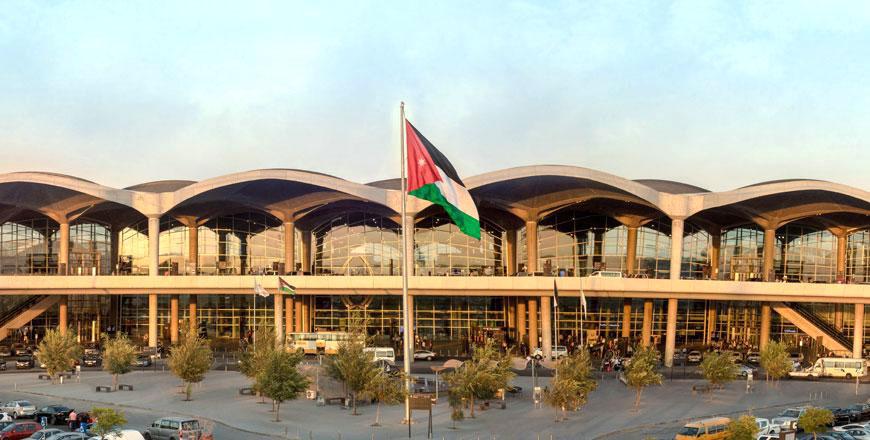- Local News
- Sun-2020-07-19 | 01:23 pm

The airport will be reopened gradually, heeding protocols that will be determined by the Ministry of Health, focusing on health directions for the different stages of passengers' travel, Saif said in a statement shared with The Jordan Times.
"The decision is not unilateral and depends on other countries and their preparations" and therefore requires coordination to maintain the Kingdom’s "good epidemiological situation”, according to the minister.
Transport eases the work of other sectors, especially in regards to coordinating movement of goods by land, sea and air, Saif said, noting that during the crisis public transport sector workers have exerted efforts to maintain the continuity of supply chains.
On the pandemic’s impact, Saif said that the loss of transportation of goods is estimated at around 103,000 shipments this year, particularly the shipments to and from Aqaba port, which he said "impacted the sector and its profitability greatly”.
The losses also affected the transportation of passengers, as the occupancy rate stood at 78 per cent in 2019, dropping to 48 per cent this year, the minister said, noting that "the sector had already been suffering but the crisis only furthered its struggle".
There are 15 modes of transportation, all of which have been considered in the government’s packages launched during the crisis to support daily wage workers, Saif said, noting that the ratio of work suspension until the end of 2020 for each mode has been calculated and deducted from the fees due to the Land Transport and Regulatory Commission (LTRC). He added that the fees constitute more than 50 per cent of the commission's profit.
Nonetheless, Saif said that "no matter the support provided to the transport sector, the losses suffered will not be reimbursed, but we wanted to mitigate the impact as much as possible", according to the statement.
The Transport Ministry is currently working on including the sector workers under social security, Saif said, noting that there is a plan to launch a system package that fits the workers' needs, which was designed with sector representatives.
"There are 64 transport companies, land, air and sea, which benefitted from the Central Bank of Jordan's programmes, at a value of JD28 million," the minister said, adding that 27,000 families of workers in the sector with public licences, have also benefitted from the programmes of the National Aid Fund, at a value of JD8.5 million.
Regarding ride-hailing applications, Saif said that the ministry is following up on the issues facing their drivers, noting that there are 17,000 yellow taxis and 13,000 vehicles working with the apps.
On the vehicles' operational age, the minister said a year has been added to the hard-hit transport vehicles to compensate them for the damage of the work stoppage they faced during the lockdown period.
There are 8,000, out of 13,000 government vehicles, with tracking devices installed, Saif said, noting that regular reports are sent to the Prime Ministry on all violations of use, including monitoring speed and fines, ensuring the vehicles are used only for official business as intended.
On the national railway project, the minister said that the technical and financial studies are complete and under evaluation by various entities, noting that it will be carried out under the build-operate-transfer (BOT) system. He added that the higher committee for partnership with the private sector at the Prime Ministry is studying the possible applicable formulas for implementation in accordance with the law.
The project starts in Aqaba, moves through Madouneh area, east of Amman, and will, in the future, branch out to neighbouring countries, according to Saif, who added that the project will also allow for the transportation of goods.
Regarding the restructuring of the transport sector, Saif said the government endorsed legal amendments to combine three commissions related to the transport sector, making all of them under one umbrella called "The Transportation Commission", reducing the number of delegates in civil aviation to only three.
The said commission will have an executive director, one delegate for sea transport, one for land transport, one for railway transport and two part-time delegates specialised in transport, according to the statement.
The Jordan Meteorological Department will also become a directorate with the ministry, the minister said, adding that the restructuring will not impact employees or result in lay-offs.
Saif said that trading with Syria is ongoing, noting that the shipments are not many, "but we hope that they will increase in the upcoming days". He added that trade did not stop throughout the crisis, with 80 per cent of shipments in Jordan going through the Omari border crossing.
He
concluded that the sector is "not only for profit, but also has a
service role”, noting that plans to upgrade the sector are continuously
being made at the ministry.









